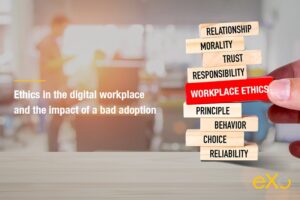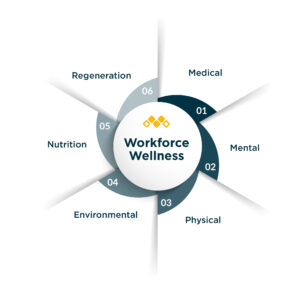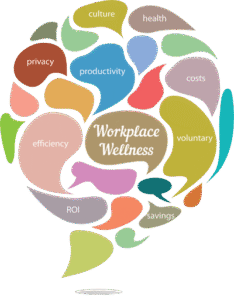Kalyan Sanitation Staff Model Integrity, Sparking HR Dialogue
6 min readMumbai, India – In an inspiring incident that has resonated across India and sparked a vital dialogue on professional ethics, sanitation staff in Kalyan, Maharashtra, demonstrated exemplary workforce integrity and honesty by returning a valuable gold ornament mistakenly discarded with household garbage. This act of profound honesty, widely lauded by municipal authorities and the community, underscores the critical importance of ethical conduct in all sectors and is now prompting human resources and corporate governance experts to re-evaluate the tangible benefits of fostering a culture of integrity, particularly within public-private partnerships and for individuals navigating competitive global job markets.
Upholding Ethical Standards: The Kalyan Incident and Its Broader Implications
The incident, which occurred during routine morning duties in Kalyan East, involved sanitation workers from Sumeet Elko, a company contracted by the Kalyan-Dombivli Municipal Corporation (KDMC). A local woman, in a moment of oversight, accidentally disposed of her gold necklace with her daily refuse. Upon realizing her mistake, she promptly alerted KDMC officials. What followed was a swift and coordinated effort that highlights the power of responsive public service combined with impeccable private sector ethics.
KDMC sanitation inspector Amit Bhalerao, upon receiving the complaint, immediately informed Samir Khade, the Ward No. 4 Area Officer of Sumit Company. Recognizing the urgency and value of the lost item, Khade acted decisively, instructing the waste collection team to divert the garbage-laden vehicle directly to the Kachore Tekdi segregation center, bypassing any further unloading that could have complicated the search. The distressed owner was then brought to the site, where the sanitation staff, in her presence, meticulously sifted through the collected waste. Their diligent search culminated in the successful recovery of the missing gold necklace, which was gratefully returned to its owner.
This seemingly localized event holds significant lessons for organizations globally. It demonstrates that integrity is not merely an abstract concept but a practical cornerstone for effective operations, especially in service-oriented roles. The immediate response and transparent process followed by both KDMC and Sumeet Elko reflect a commitment to public trust and ethical service delivery. Samir Khade’s commendation of his team for their “honesty and sense of duty” encapsulates the positive organizational impact of such actions. The anonymous woman, deeply relieved, articulated the profound trust instilled by their actions: “They could have easily ignored the search or even kept the necklace for themselves, especially at a time when gold prices are so high. But instead, they acted with complete honesty… That truly deserves appreciation.” This sentiment underscores a universal truth: genuine integrity builds invaluable social and professional capital.
Workforce Integrity as a Strategic Asset in Public-Private Collaborations
The Kalyan incident serves as a compelling case study for the burgeoning landscape of public-private partnerships (PPPs) in India and beyond. In an era where governments increasingly collaborate with private entities to deliver essential services, the ethical bedrock of these collaborations becomes paramount. The seamless coordination between KDMC and Sumeet Elko, driven by a shared commitment to resolving a citizen’s predicament, exemplifies how strong ethical foundations can enhance operational efficiency and bolster public confidence in such alliances.
For private companies engaging in public contracts, demonstrating unwavering workforce integrity and honesty is not just good practice; it is a strategic imperative. It mitigates risks, fosters a positive brand image, and can be a significant differentiator in securing and retaining lucrative government contracts. Conversely, a lack of integrity can lead to severe reputational damage, financial penalties, and the termination of partnerships. This makes ethical leadership and robust internal controls vital for companies operating in the public sphere.
Organizations must go beyond mere compliance and actively cultivate a culture where integrity is celebrated and rewarded. This includes implementing clear codes of conduct, providing regular ethics training, establishing transparent grievance redressal mechanisms, and, crucially, recognizing and incentivizing acts of honesty. The public praise received by the Kalyan sanitation workers offers a valuable blueprint for how recognition, even for seemingly small acts of integrity, can create a ripple effect, inspiring others and reinforcing organizational values. This narrative supports the idea that investment in an ethical work environment yields substantial returns in trust and operational excellence.
Impact on Global Employment and Career Development for Future Professionals
While the Kalyan story originates from a municipal setting, its lessons on workforce integrity and honesty have far-reaching implications, particularly for individuals aspiring to global careers, including international students. In today’s interconnected job market, employers across industries and borders place immense value on candidates who demonstrate a strong ethical compass. Integrity is no longer a soft skill; it is a core competency that distinguishes top talent.
For international students and young professionals preparing to enter or advance in the global workforce, understanding and embodying integrity is critical. Companies actively seek employees who can be trusted with sensitive information, financial assets, and client relationships. A reputation for honesty can significantly enhance a candidate’s profile, making them more attractive for highly sought-after positions, especially those that might involve international transfers or require specific visa sponsorships. Ethical conduct builds a professional legacy that transcends educational qualifications alone.
Furthermore, an individual’s integrity can directly influence their career trajectory and opportunities for professional growth. Ethical lapses, even minor ones, can lead to severe consequences, including termination, reputational damage, and even legal repercussions, which can, in turn, affect immigration statuses or future visa applications. Conversely, consistently demonstrating honesty, reliability, and accountability establishes a foundation of trust that can open doors to leadership roles, mentorship opportunities, and a supportive professional network. The Kalyan staff’s actions serve as a powerful reminder that basic honesty, regardless of one’s role or sector, is a universally admired and professionally valuable trait.
Expert Insights & Practical Recommendations for Cultivating Integrity
The Kalyan incident provides a timely opportunity for organizations and individuals alike to reflect on and strengthen their commitment to integrity. For companies, especially those in service delivery and public interaction, embedding a culture of workforce integrity and honesty requires a multi-faceted approach:
- Develop Clear Ethical Codes: Establish and regularly communicate comprehensive codes of conduct that define expected ethical behaviors and consequences for non-compliance.
- Implement Robust Training Programs: Conduct regular workshops and training sessions on ethics, conflict of interest, data privacy, and handling sensitive situations. Case studies, like the Kalyan incident, can be powerful teaching tools.
- Foster a Culture of Transparency: Create an environment where employees feel comfortable reporting ethical dilemmas or mistakes without fear of undue reprisal. Implement clear “lost and found” protocols for valuable items.
- Recognize and Reward Ethical Behavior: Publicly acknowledge and reward employees who demonstrate exceptional integrity. This reinforces desired behaviors and motivates others. The KDMC and Sumit Company’s swift recognition of their staff is a prime example.
- Ethical Leadership: Leaders must model integrity in their own actions, setting the tone for the entire organization.
For individuals, particularly international students planning their careers, these insights translate into actionable steps:
- Prioritize Personal Integrity: Understand that honesty and ethical conduct are non-negotiable professional attributes. They are foundational to building a successful and respected career.
- Research Company Ethics: When seeking employment, investigate a company’s ethical track record and values. Working for an ethical organization aligns with personal values and offers a more secure and rewarding career path.
- Be Accountable: Take responsibility for your actions and learn from mistakes. Transparency in your professional dealings builds trust.
- Understand Workplace Policies: Familiarize yourself with your employer’s ethical guidelines and policies. Adherence is crucial for compliance and demonstrating commitment to integrity.
- Network Ethically: Build professional relationships based on mutual respect and trust. Your reputation for honesty will precede you and open doors to new opportunities.
Looking Ahead: The Enduring Value of Honesty in a Globalized World
The exemplary conduct of the Kalyan sanitation staff is a stark reminder that acts of integrity, however small they may seem, possess immense power to inspire and influence. As societies continue to grapple with complex ethical challenges, the demand for transparent and honest institutions will only grow. This incident is likely to spark further discussions among HR professionals, public administrators, and business leaders on how to systematically embed, measure, and celebrate workforce integrity and honesty within their organizations.
For aspiring global professionals and international students, the message is clear: personal integrity is a universal currency. It transcends cultural and national boundaries, serving as a critical differentiator in a competitive job market. As global mobility increases and diverse teams collaborate across continents, the ability to operate with unwavering ethical principles will not only define individual success but also contribute to the collective strength and trustworthiness of organizations worldwide. The Kalyan staff has set a benchmark, demonstrating that ethical leadership starts with honest hands and a commitment to doing what is right.
Reach out to us for personalized consultation based on your specific requirements.



